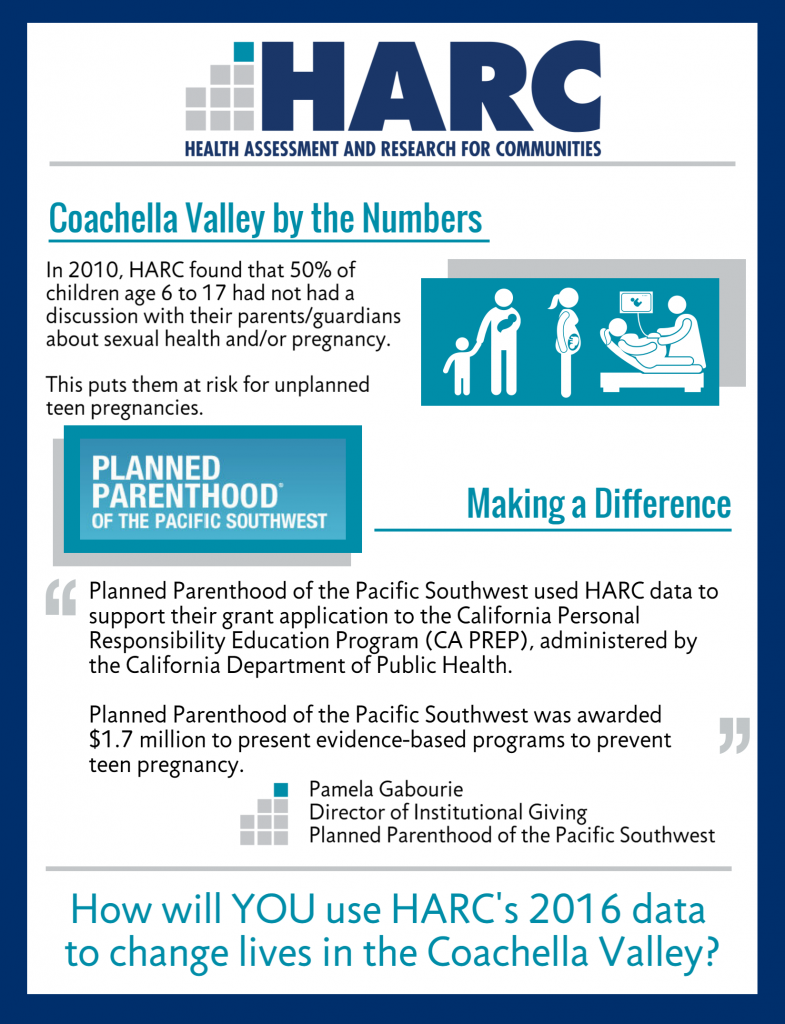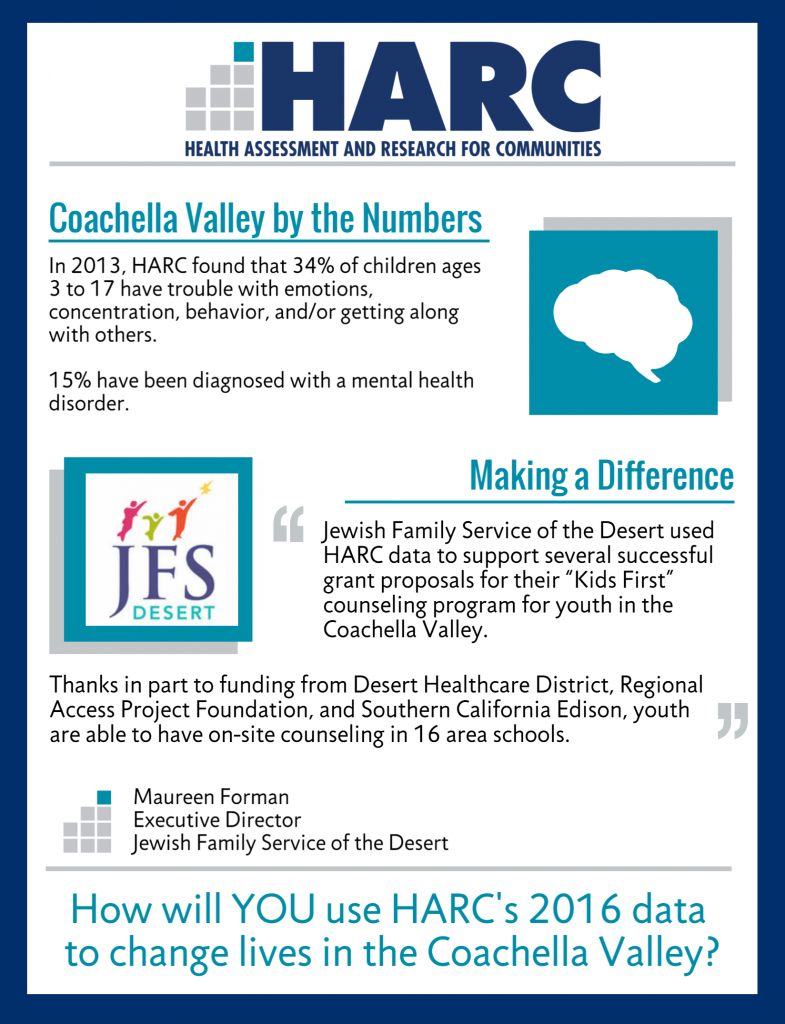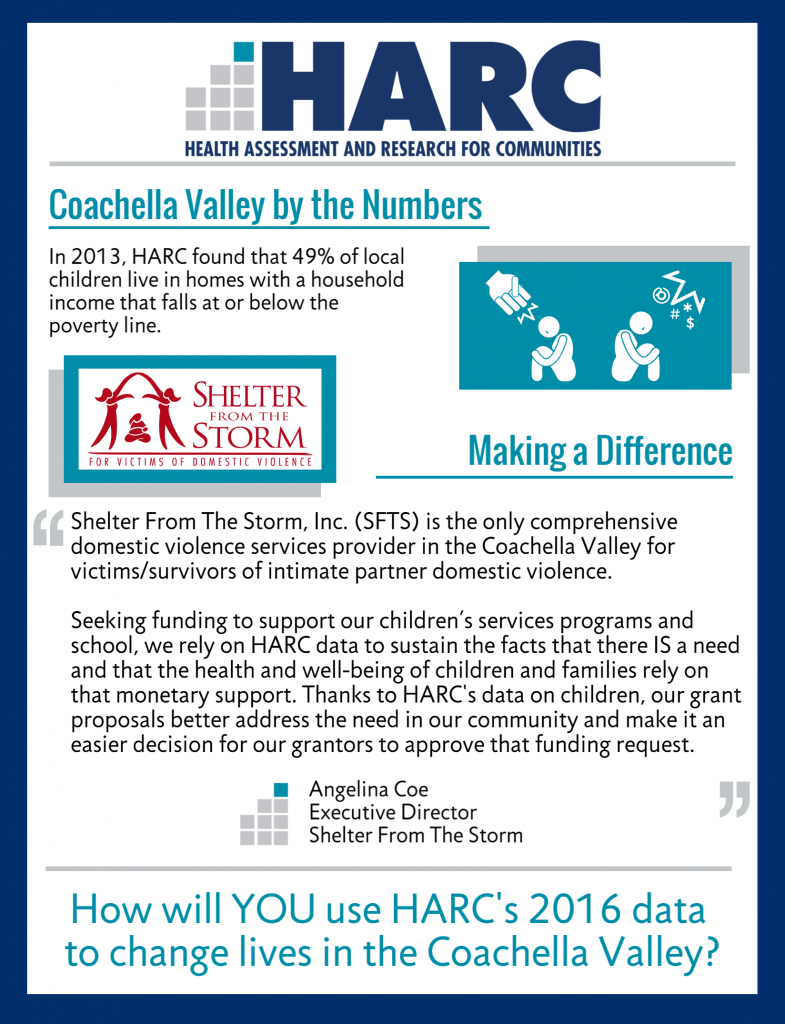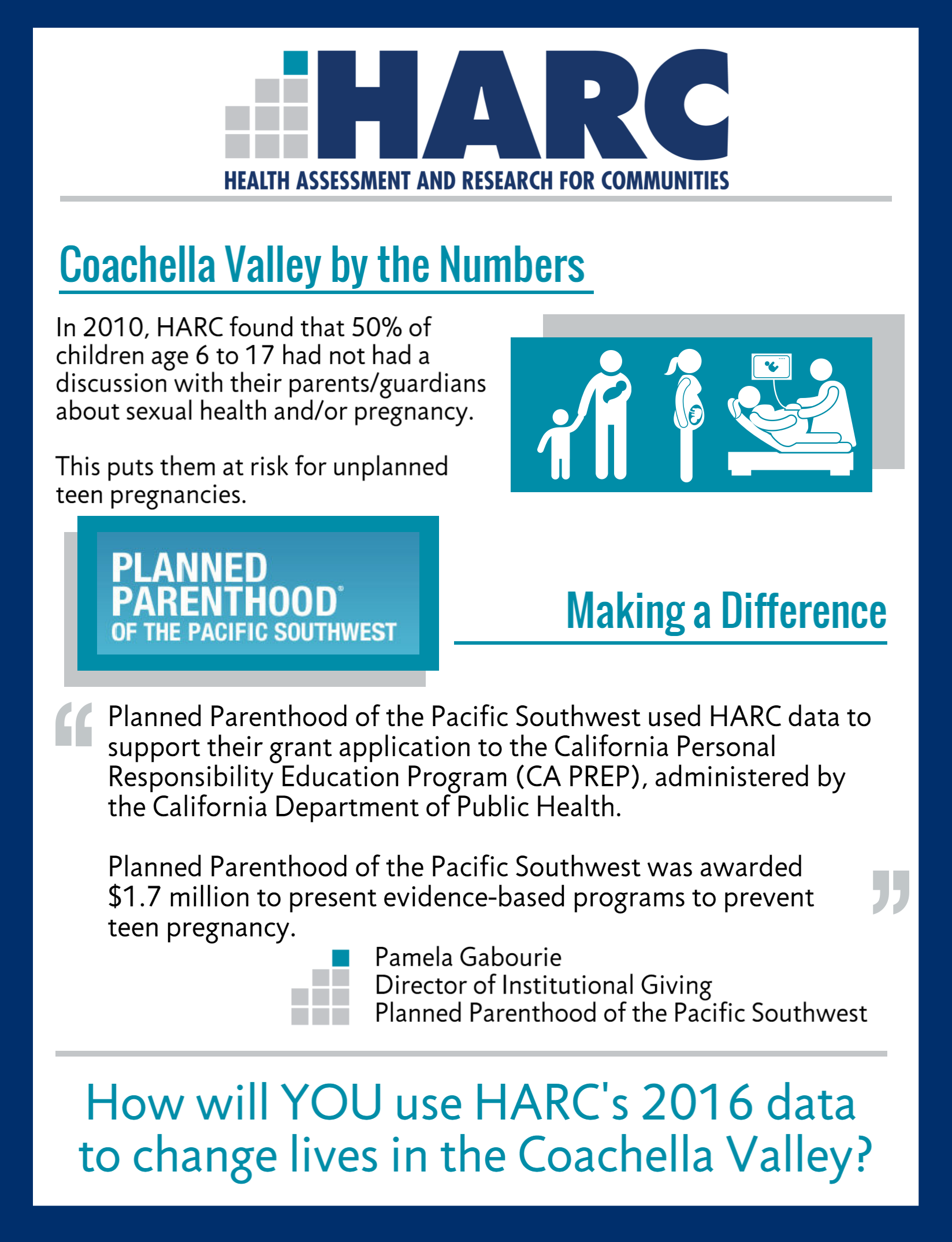New community health data available
I apologize for my lengthy absence from blogging. Every three years, my (very small) nonprofit, HARC, conducts a huge community health survey and provides that information back to the community to use at no charge. Our once-every-three-years data release event occurred last week, and it took all of our attention for the past three months.
Note: For those of you interested in Coachella Valley, California health, check out the report we released last week: it’s packed with information and easier than ever to digest!
Whenever I write this blog, I try to frame it broadly—“this is what we do to impact our community, but it could easily be transplanted to your community”. Today, though, I’m going to get a little local. I can’t help it, it’s a big milestone for HARC.
HARC was originally formed to provide community-level data for our region, known as the Coachella Valley (eastern Riverside County in Southern California). We’re part of a big county (our county alone is bigger than the states of Rhode Island, Delaware, and Connecticut), and completely ringed by mountains, so it feels a bit like being on an island—people don’t leave the Valley for services unless they have to. We have several other things that make us unique—a retirement community with thousands of seasonal “snowbirds” means that the very wealthy live next door to the very poor. Our community wanted sub-county data in order to tell our unique story, and felt that it wasn’t available (it really wasn’t). So 30 local organizations got together to form the brainchild that would become HARC.
To solve the data shortage, it was decided that HARC would do a survey every three years of the health of our region. That survey, it was decided, would be a random-digit-dial telephone survey. The results would be provided back to the community at no charge, so people could use it to make great things happen (see my earlier posts about the magic that comes from needs assessments).
That was 10 years ago. Last week marked the release of our fourth survey’s data (2007, 2010, 2013, and 2016) and I am so proud. I have not been with HARC since the beginning; I’ve been involved in the 2013 and 2016 surveys, but not the older ones. Still, I feel such proud ownership of this magical survey, I could just cry.
Why is it so amazing? Let me share some of the success stories that people have been able to accomplish with our data.
First, a win in the sexual health field:

Next, a win in the mental health/behavioral health field:

And finally, a win in the social services field:

I am extremely excited to see what new, wonderful things people do with our brand-new 2016 community health data!
Next week: back to our regularly scheduled posts that apply to anyone and everyone who wants to use data for good (not just those in the Coachella Valley).
